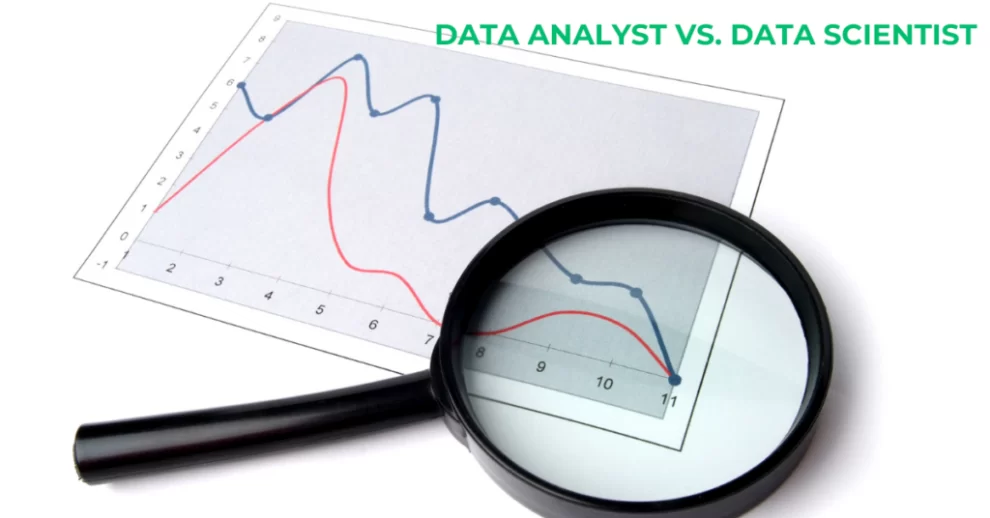Mumbai, India’s financial and entertainment capital, is rapidly transitioning into a central global data and analytics talent hub. As companies across industries leverage data-driven insights for growth and innovation, the roles of Data Analysts and Data Scientists have never been more critical.
In this in-depth guide, we’ll explore the key differences between these two exciting career paths in a detailed yet engaging manner. We’ll cover typical job responsibilities, skills required, and educational backgrounds and compare standard career options and progression opportunities available in Mumbai.
By the end, you’ll understand which path best suits your interests, strengths, and career aspirations. So whether you’re a student considering your first step or a professional looking to transition, keep reading for everything you need to know!
Data Analyst Course: The Foundation of Data-Driven Insights
Data Analysts play a vital foundational role in harnessing the power of data to benefit organizations. They act as the bridge between raw data and actionable insights critical for evidence-based decision-making. Taking a data analyst course can help you develop the essential skills needed to excel in this career.
Key Responsibilities
- Data Collection: Gathering data from internal systems and external sources into a centralized database or data warehouse. This often involves extracting, transforming, and loading (ETL) processes.
- Data Cleaning: Ensuring data quality by identifying errors or inconsistencies and resolving issues related to accuracy, completeness, and validity.
- Exploratory Data Analysis: Getting familiar with different datasets through statistical techniques to understand patterns, outliers, and relationships.
- Visualization: Translating complex data into clear, visually appealing reports, dashboards, and presentations through tools like Tableau, Power BI, and Excel.
- Statistical Analysis: Employing statistical methods like hypothesis testing, regression analysis, and segmentation to uncover meaningful insights.
- Reporting: Prepare written reports, memos, and briefings to communicate findings and recommendations for action.
Core Skills
- SQL: Proficient in writing SQL queries to extract, cleanse, and analyze structured data from relational databases.
- Excel: Advanced Excel skills for data wrangling, pivot tables, basic visualizations, and statistics.
- Statistics: Understanding of descriptive and inferential statistics.
- Programming: Comfort with at least one programming language like R or Python for complex analyses.
- Communication: Exceptional verbal, visual, and written communication skills to share insights.
- Domain Knowledge: Familiarity with business terminology and critical metrics to contextualize findings.
As the foundation of data-driven insights, Data Analysts play a critical role in supporting business decision-making across functions like marketing, finance, operations, and more. A Data Analytics Course can provide the practical knowledge needed to thrive in this role.
Data Scientist: Architects of Data-Driven Innovation
While Data Analysts focus on exploratory insights, Data Scientists delve deeper into modeling complex relationships within data to develop predictive solutions. They are at the forefront of applying cutting-edge techniques like machine learning, deep learning, and natural language processing.
Core Responsibilities
- Problem Definition: Understanding business objectives and constraints to define data science problems formally.
- Data Engineering: Wrangling and preparing large, heterogeneous datasets for modeling.
- Algorithm Development: Designing, prototyping, and selecting optimal models through techniques like regression, clustering, recommendation engines, etc.
- Model Evaluation: Rigorously testing models on validation datasets and tuning hyperparameters to improve accuracy.
- Model Deployment: Integrating models into production systems through APIs or user-friendly interfaces.
- Continuous Learning: Tackling new problems as business needs evolve and data streams continue.
Essential Skillset
- Computer Science Fundamentals: Strong foundations in algorithms, data structures, mathematics, and programming.
- Machine Learning: Expert-level grasp of supervised, unsupervised, and reinforcement learning techniques.
- Statistics: Familiarity with statistical modelling, hypothesis testing, confidence intervals, Bayesian methods, etc.
- Programming: Fluency in Python, R, and SQL for data exploration, feature engineering, model development, and deployment.
- Communication: Ability to liaise with technical and non-technical stakeholders to understand problems and deliver solutions.
As innovation leaders, data scientists help businesses evolve by developing AI-powered applications with transformative potential. Enrolling in a data analyst course or a Data Analytics Course can serve as a stepping stone toward advancing into data science.
Common Career Paths in Mumbai
Let’s explore some famous roles in Mumbai within each path that reflect their distinct skills and responsibilities:
Data Analyst Career Options
- Business Analyst: Analyze processes and benchmarking and provide metrics-backed recommendations to drive efficiency and growth.
- Marketing Analyst: Leverage consumer insights for campaign optimization, segmentations, media mix modelling, and ROI measurement.
- Financial Analyst: Model investment performances, conduct a fundamental analysis of stocks, and risk assessment for portfolio strategies.
- Supply Chain Analyst: Forecast demand trends, optimize inventory levels, rationalize distribution networks, and coordinate logistics.
- HR Analyst: Derive people analytics on culture, engagement, retention, diversity, and compensation benchmarking.
Data Scientist Career Paths
- Machine Learning Engineer: Build, deploy, and maintain predictive and prescriptive models across domains like fraud, recommendations, and predictive maintenance.
- Data Engineer: Design scalable data architectures, pipelines, and warehouses to support advanced analytics over petabytes of data.
- Research Scientist: Pursue fundamental research through experimentation on novel problems like computer vision, NLP, and reinforcement learning.
- Solutions Architect: Conceptualize data science solutions, oversee their development, and ensure productionization through frameworks like TensorFlow, PyTorch, and Spark.
- AI Consultant: Provide strategic advisory and implementation support to help organizations maximize ROI from data science investments.
Making an Informed Choice
In summary, Data Analysts focus on exploratory analyses and insights, while Data Scientists delve deeper into predictive modelling. Both paths are advantageous, so how do you determine the best fit?
Assess Your Skills and Interests
-
Do you enjoy problem-solving with data and complex modelling? Data Science may be a better match.
-
Are clear communication and statistical analyses your strengths? A data Analysis role may be more suitable.
-
Consider taking a data analyst course or Data Analytics Course to explore different techniques and get hands-on with tools.
Evaluate Educational Requirements
- A Bachelor’s in a field related to analytics, like Engineering or Statistics, is typically required for Data Analyst roles.
- Data Science positions often expect a Master’s degree in Data Science or related fields, plus programming internships.
Research Industry Demand and Compensation
- Both roles are in high demand across industries in Mumbai, from BFSI to e-commerce and technology.
- On average, entry-level salaries range from Rs. 350K-500K p.a. for Analysts and Rs. 500K-800K p.a. for Scientists.
- Long-term earnings growth and progression to leadership/specialist roles favour Data Scientists.
The final choice depends on weighing aptitude, educational qualifications, work profile preferences, and growth opportunities in the Mumbai market. An analytical mindset and passion for data equip you for success in either field.
Conclusion
In this comprehensive guide, we explored the nuanced yet important differences between two lucrative and impactful career options: Data Analyst and Data Scientist. Mumbai’s booming technology sector ensures high demand for data talent, so by carefully understanding the requirements of each path, you can embark on an exciting journey of extracting value from data to solve real-world problems.
Whichever role you choose, the future is bright for those who can harness the power of data. So get started by upskilling your technical and soft skills through online programs, internships, and networking. You are wishing you the very best in your analytics career!
Name: ExcelR- Data Science, Data Analytics, Business Analytics Course Training Mumbai
Address: 304, 3rd Floor, Pratibha Building. Three Petrol pump, Lal Bahadur Shastri Rd, opposite Manas Tower, Pakhdi, Thane West, Thane, Maharashtra 400602
Phone Number: 09108238354












